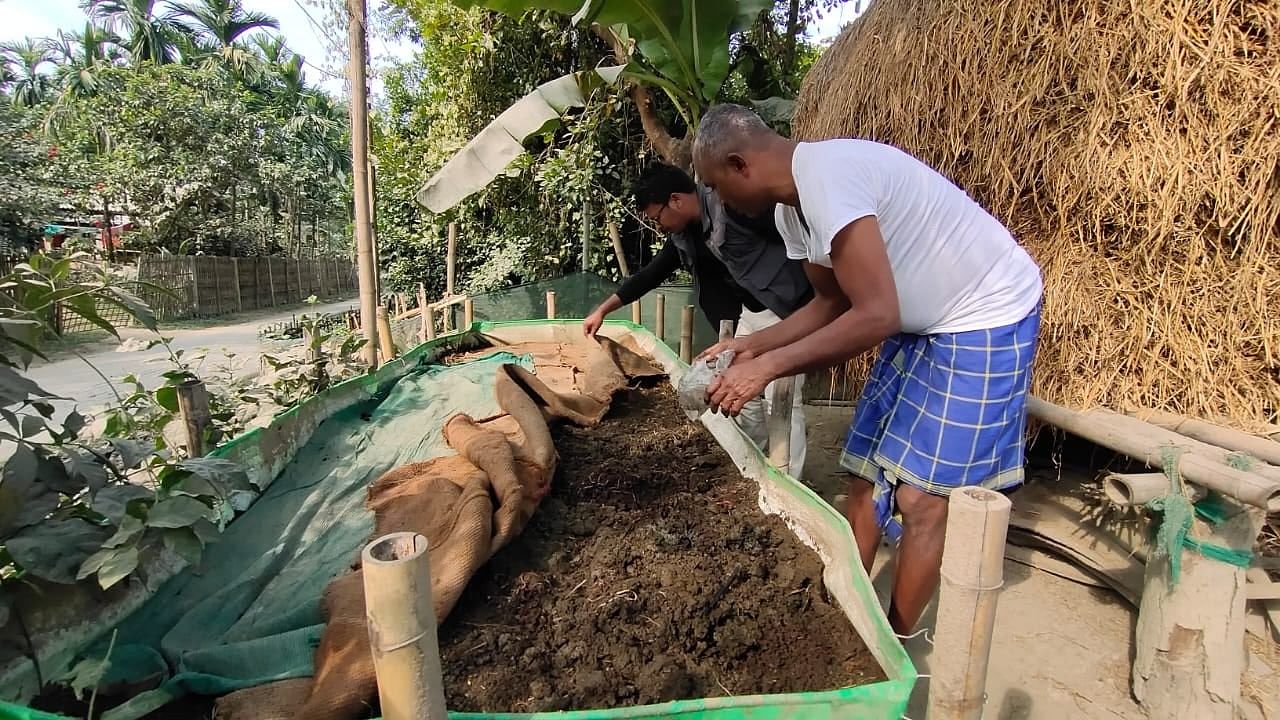
Farmers living close to three major habitats of one-horned rhinos in Assam are being provided lessons in vermicomposting as an alternative source of livelihood in order to help them in conservation efforts.
The pilot project on vermicomposting was initiated by Aaranyak, a biodiversity conservation group in Assam and International Rhino Foundation (IRF) for farmers living around a few villages of Kaziranga National Park, Pobitora Wildlife Sanctuary and Orang National Park in Assam.
The 900-odd sqkm Kaziranga National Park has 2,413 rhinos in 2018 while the Pobitora and Orang have 100 and 101 rhinos respectively.
Ten vermicompost producing units were set up near Kaziranga by 15 farmers who were provided training under a pilot project. They have produced 20 quintals of vermicompost whic has been utilised by farmers in their fields and also sold in the market. "After the success of the pilot, second project was taken up around Pobitora Wildlife Sanctuary where 10 farmers from villages near the sanctuary have been trained on vermicomposting. Out of the 10 units, three have started production," Aaranyak said in a statement.
Cow dung, water hyacinth, banana plant and other biodegradable wastes have been used in preparation of the vermicompost.
"The project aims for reduction of use of chemical fertilizers in fringe areas of rhino-bearing forests in Assam so that the dwelling places (grasslands) of the precious one-horned Indian rhinos could be safeguarded from pollution caused by chemicals used for farming activities. Moreover, vermicomposting skill is bound to provide fringe area farmers with and alternative livelihood option so that they extend their cooperation towards the efforts to conserve one-horned rhinos," said the statement.
Vermicomposting is a simple process of composting in which certain species of earthworms are used to convert organic waste to a better product. Vermicompost enriches the quality of soil by improving its physicochemical and biological properties. It helps in raising seedlings and increasing crop production on an eco-friendly way, it said.
Livelihood support to farmers living in the fringe areas are also likely to help in efforts to check rhino poaching in the long run as the poachers target such people to extract information and for shelter by paying money.
Check out DH's latest videos: